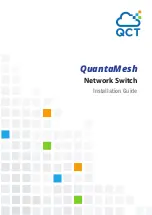
89
APPENDIX C: About Security Certificate Warnings
Appendix C. About Security
Certificate Warnings
C.1 Frequently Asked Questions
What is a security certificate?
Sites that employ secure TCP/IP (Internet) connections include a certificate that
confirms that users are connecting to a legitimate site and are not being redirected
without their knowledge. Certificates are issued by trusted third parties called
Certificate Authorities (CAs) and contain essential details about a site that must
match the information supplied to your Web browser.
Why do I receive a warning when I access the login screen on the ServSwitch?
As it redirects you to a secure (SSL) session by default, the login screen may
generate a warning from your Web browser or the VNC Java client for two different
reasons. First, the CA that has issued the certificate may not yet be recognized as a
trusted source by the computer you are using to access the ServSwitch. Second,
since the unit could be configured in a number different ways, it is impossible to
supply a generic certificate that will match your exact network settings.
Is my data safe?
Yes. The security certificate does not affect encryption effectiveness in any way, nor
does it make the ServSwitch any more vulnerable to outside attacks.
Can I prevent the warning from occurring?
Yes. You have two options that may prevent the warning from occurring. First, if
the Web browser you are using offers the option to ignore the warning for future
visits, the browser will no longer generate a warning if that option is selected.
Second, if you install the certificate from the ServSwitch onto the remote computer
and if the unit is configured with a domain name ending in .com, .net, .org, .gov,
.edu, .us, .ca, .uk, .jp, or .tw (for example, remotecontrol.mydomain.net), then the
warning should no longer occur.
Summary of Contents for KV9404A
Page 3: ......
















































